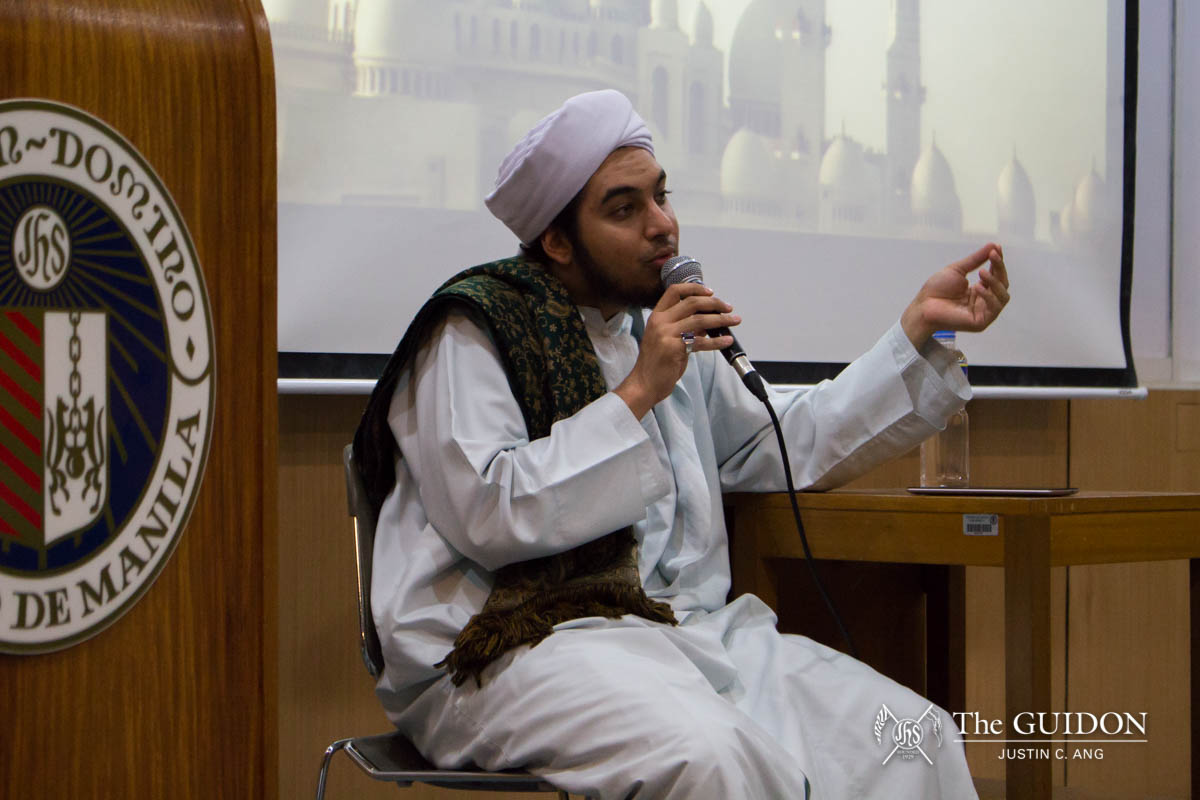SUNNI SCHOLAR Shiekh Imran Anguilla was invited to speak about Islamic spirituality, the connections between Islam and Christianity and the rise of radicalization in Salam: Islam Dialogue and Inter-religious Dialogue on Peace on October 21 at the Faura AVR.
Involved in the event were the SALAAM Institute (Social Action Learning and Advocacy for Atenean Muslims), LS Office of Campus Ministry, Office of the VP for Social Development, and Erth Ul-Mustafa Academy.
Matters of the faith
Anguilla gave emphasis on the similarities between Islam and Christianity by saying that there has always been a “special relationship” between the two religions, especially because of their source and the way they conduct their religions.
Although Jesus was regarded differently between these two religions, He was deemed with great respect in Islam. “There were no words of rudeness or oppression for Jesus. We [Muslims] have great respect for Jesus,” Anguilla said.
Anguilla mentioned that one of the most important things in Islamic spirituality is perfecting one’s character which also involves perfecting one’s relationship with God and with people. According to him, Muslims are called not to hurt anyone with their words or actions.
“A Muslim [is someone who makes sure that] the rest of the people is safe from being hurt by his tongue or his hand,” he said.
Anguilla also clarified the common misconception that “Islam” means peace when in fact it meant “to promote peace,” while “Salam” meant “peace.”
“Being a Muslim means you have the duty to promote peace,” he said.
He also mentioned that education is relevant in the promotion of Islam and that it must coexist with peace.
“When war happens, the Muslim can’t be educated properly. Our scholars have been giving a lot of emphasis on peace before education, because when there’s peace, there’s proper education,” he said.
Moreover, he said that Islam must be practiced with knowledge from the right sources. According to him, taking Islam from the wrong sources causes radicalization.
“Islamic spirituality comes hand-in-hand together with Islamic knowledge. Extremely radicalized Islamic ideals, mostly, if not all, are not taken from Muslim scholars. They are taken from politicians who try to manipulate and use religion for their own benefit,” he added.







